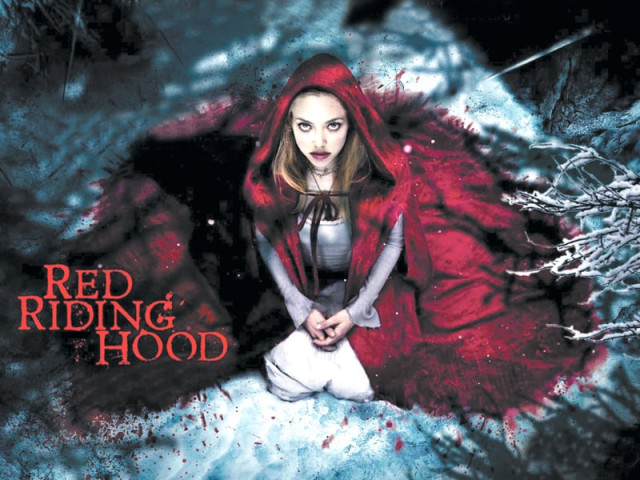Adapted screenplays: Coming soon to a theatre near you
New trends in adapted screenplays.

Adapted screenplays: Coming soon to a theatre near you
Studios are always in search of the next big thing, whether it’s adding 3-D special effects, casting young, rising stars, or buying the rights of bestselling novels. From JK Rowling, Tolkien and Stephenie Meyer to John Grisham, Dan Brown, Helen Fielding and Nicholas Sparks, screenplays adapted from popular fiction often have what it takes to rake in box office gold.
However, the process may resemble winning a lottery (particularly for lesser known writers) as scripts tend to remain in development mode for years, going through rewrites, dissected at executive meetings and couriered over to actors to attract their participation. The lucky few that ‘win’ a production budget eventually get made while the rest remain in the preproduction vault — often for eternity. For instance, Warner Bros acquired Paulo Coelho’s bestselling The Alchemist back in 1994, followed by Laurence Fishburne and Harvey Weinstein, and the project still seems dormant.
While literary titles like Jane Eyre and Pride and Prejudice continue to inspire relatively faithful remakes year after year, notable deviations from traditional genres have resulted in distinct trends among adapted screenplays:
‘The other’ perspective
The world finally seems interested in what we’re thinking and we’re welcoming the change. The screen adaptation of Mohsin Hamid’s The Reluctant Fundamentalist, starring Pakistani model and singer Meesha Shafi, is the first ever mainstream Hollywood project adapted from a Pakistani novel.
Period horror
Classic literature meets supernatural horror in this growing genre. While Elizabeth Bennet is generally a plum role for A-list actor, the macabre setting of Seth Grahame-Smith’s Pride and Prejudice and Zombies has scared off notable female actors, resulting in years of production delays. Smith also scribed Abraham Lincoln: Vampire Hunter, whose film version is due for release next year.
Fairytales retold
Traditional fairytales with a dark, chilling twist: Amanda Seyfried plays a medieval Red Riding Hood whose icy village is threatened by a werewolf. A college student is hired to enact old men’s creepy fantasies of sleeping maidens in Sleeping Beauty; and the (currently filming) Snow White and the Huntsman, in which Kristen Stewart’s Ms White is an anti-Disney warrior princess.
OMG! Tween comedies
High school ‘dramedies’ have proved the ongoing significance of teenaged audiences since the eighties, but it’s tweens who seem to be the new teens in terms of consumer buying power. This age group, ‘in between’ childhood and adolescence, has emerged as an integral part of current popular culture, as illustrated by the success of Jeff Kinney’s Diary of a Wimpy Kid series and it’s film versions, as well as Megam McDonald’s Judy Moody and the Not Bummer Summer, with their endearing brand of coming-of-age dork humour.
Less fluffy chick flicks
Hollywood’s search for the next Bridget Jones’ Diary or The Devil Wears Prada has resulted in films like Confessions of a Shopaholic (Sophie Kinsella’s The Undomestic Goddess is also development) and Emily Giffin’s Something Borrowed. While the typical Chick-lit heroine is a single, fun-loving, upper middle class city girl, upcoming book-to-film adaptations reflect changing standards, like the unglamorous Yorkshire waitress-teacher Emma in David Nicholls’ One Day (fans of the novel rue Anne Hathaway as an inappropriate choice) and married, mother-of-two hedge fund manager Kate in Allison Pearson’s I Don’t Know How She Does It: The Life of Kate Reddy, Working Mother (to be depicted by Sarah Jessica Parker).
Help yourself
In the tradition of guidebook-turned-movie-with-multiple-storylines-and-ensemble-casts (initiated by He’s Just Not That Into You), Heidi Murkoff’s how-to pregnancy bible, What To Expect When You’re Expecting, is in production, while John Gray’s 1992 relationship bestseller, Men Are From Mars, Women Are From Venus, is currently being developed as a feature film.
Womance
While Hangover-type movies typify the ‘bromance’ genre (bordering-on-raunchy comedies focusing on heterosexual male friendships), Bridesmaids ushered in a new era of a ‘buddy’ films for women featuring coarse humour and a plot centering on platonic female friendships.
Published in The Express Tribune, October 9th, 2011.



















COMMENTS
Comments are moderated and generally will be posted if they are on-topic and not abusive.
For more information, please see our Comments FAQ